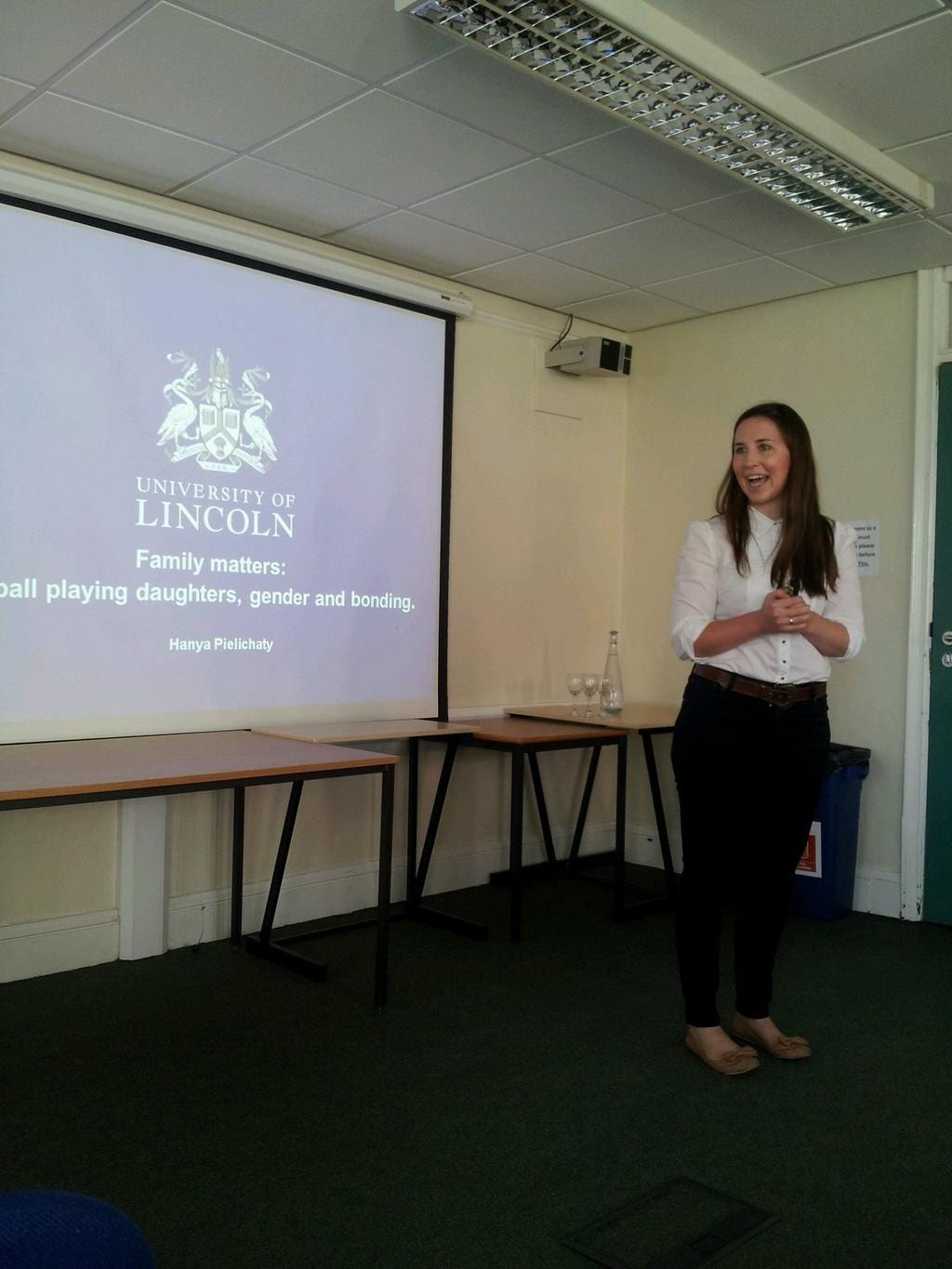 Being an academic is the best job in the world and this week has really been testimony to that. On Monday I joined colleagues from other universities in attending the International Conference on Qualitative Research in Sport and Exercise hosted by the University of Loughborough. Headlining acts included Professor Michael Atkinson discussing his five year ethnographic research on Ashtanga yoga; Professor Brendan Gough focusing on masculinities; Dr Jayne Caudwell exploring feminism and Queer Theory in relation to sport and lastly Professor Mark Anderson talking anxiety, the human mind and Freud. It was this final keynote which produced the ‘word of the conference’ for me in the form of deliquesce, meaning to melt away (one to try out in a lecture). This three day conference was an inspirational experience and one which has reinvigorated me to get back into my own PhD research.
Being an academic is the best job in the world and this week has really been testimony to that. On Monday I joined colleagues from other universities in attending the International Conference on Qualitative Research in Sport and Exercise hosted by the University of Loughborough. Headlining acts included Professor Michael Atkinson discussing his five year ethnographic research on Ashtanga yoga; Professor Brendan Gough focusing on masculinities; Dr Jayne Caudwell exploring feminism and Queer Theory in relation to sport and lastly Professor Mark Anderson talking anxiety, the human mind and Freud. It was this final keynote which produced the ‘word of the conference’ for me in the form of deliquesce, meaning to melt away (one to try out in a lecture). This three day conference was an inspirational experience and one which has reinvigorated me to get back into my own PhD research.
On Thursday I drove to Leeds Metropolitan University for a one-day conference entitled Sporting Females: Past, Present, Future in celebration of the 20th anniversary since the publication of Professor Jennifer Hargreaves’ seminal text Sporting Females: Critical Issues in the History and Sociology of Women’s Sports. This textbook is a valuable and important read and of just as much relevance now as it was then. The reason why this book still has so much currency is due to the fact, 20 years on girls and women in sporting contexts are still fighting for equality, a voice to be heard and a right to play, watch, support and consume sport in a fair way. The Women’s Sport and Fitness Foundation (2014) acknowledge that over half of girls disengage with school sport and PE, furthermore women’s sponsorship deals in sport equate to only 0.4% in the field. Now whilst there has been vast improvement in the opportunities, funding and provision for girls and women to access sport this does not necessarily correlate to changing societal views of girls and women who participate in sport. This conference highlighted to me that girls and women are striving to normalise and engage with sport and physical education and are carving out their own space to express themselves. Physical and socio-cultural spaces for girls and women to play and watch sport need to be fought for which includes allowing the Women’s World Cup 2015 to be played on grass rather than the proposed astroturf.
Professor Jennifer Hargreaves was in attendance at this conference and delivered the closing address. She spoke in a manner which was passionate, controlled, endearing and enlightening; I have never been so mesmerised. She encouraged women scholars to not be bystanders within the academic space and to stand up for what you know and what you believe in. This connects to the words of Professor Anne Flintoff at the start of the conference who urged a change in the academic structures of power and encourages more women into leadership and professorial roles. Currently only 17% of universities in the UK (Jarboe, 2013) have a woman Vice Chancellor, I am proud to say our university is one of these.
I acknowledge that I am in a privileged position and attending conferences like these has confirmed both my love for my job and my feeling of gratefulness to be in such an opportunity. Whatever you may do, whether in the field of academia, sport, work or home-life strive for equality and freedom and make sure your voice is heard. To finish this blog it seems fitting to hand over to Professor Jennifer Hargreaves,
‘In Western cultures in particular there is a tendency for women to experience their bodies as sites of oppression and to harbour a vision of a different and better body. But sports have become social experiences that for increasing numbers of women are positive, pleasurable and empowering. Women’s consciousness about their own physicality is changing and they are active agents in this process’ (1994, 289).
So do not be a passive dupe but rather embrace and actively seek to create and reinvigorate spaces for all; in and out of academia.
References
Hargreaves, J. (1994) Sporting females: critical issues in the history and sociology of women’s sports. London: Routledge.
Jarboe, N. (2013) Women count: leaders in Higher Education 2013. London: KPMG. Available from http://www.kpmg.com/UK/en/IssuesAndInsights/ArticlesPublications/Documents/PDF/Market%20Sector/Education/women-count-leaders-higher-education-2013.pdf [Accessed 5 September 2014].
Women’s Sport and Fitness Foundation (2014) We exist to create a nation of active women and girls. [online] London: WSFF. Available from http://www.wsff.org.uk/ [Accessed 5 September 2014].

